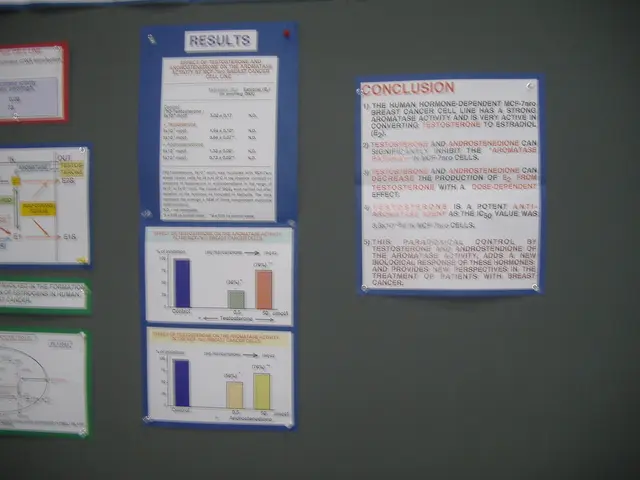Unable to Cover Hep C Treatment Costs? Here's a Speedy Guide
Down with Hep C, mate? Here's the slim on this virus:
Hepatitis C, or Hep C, is a virus that infects your liver because of contact with someone who's already got it. It can lead to issues like yellowish skin or eyes, dark pee, gray poop, and tummy ache.
In some cases, you'll develop an acute infection that might be mild or severe, but it usually clears up in a few weeks. But, almost half the time, Hep C becomes chronic, which can be a right bastard and may cause liver cancer, cirrhosis, and liver damage.
But, hey, don't lose hope! Hep C can be cured with treatment. If you catch it early, you've got a good chance of beating it.
Say goodbye to those nasty '80's injections. Today, you can take direct-acting antiviral pills. These pills, like Sofosbuvir, ledipasvir-sofosbuvir, or elbasvir-grazoprevir, are super effective - 95% of the time, they'll kick that virus to the curb. They also have fewer side effects than the old injections, like less fatigue and headaches.
Now, here's the kicker: Hep C medication can be pricey — especially if you ain't got insurance. For instance, a single pill of Sofosbuvir costs a whopping $1000 and a 12-week treatment would set you back $84,000. Other medications may be a bit cheaper, but they're still steep for most folks.
So, what's a cash-strapped patient to do? Here are some options:
Health insurance plans
With the Affordable Care Act (ACA) passing, insurance providers can't refuse coverage for anyone with a pre-existing condition. Even if you're diagnosed with Hep C uninsured, you can enroll in a plan and get coverage. Just remember, shop around for the right plan—some providers may have restrictions like not covering treatment until you're very sick or refusing to treat you if you've been using drugs or drinking booze.
If you're low-income, you might qualify for your state's Medicaid or Medicare program.
Patient assistance programs
Pharmaceutical companies offer these programs to help low-income individuals afford the medication they need. Expect free or low-cost Hep C drugs if you're not on Medicaid, Medicare, or other government prescription plans. Co-pay patient assistance programs can also help reduce your copay or coinsurance for the medication.
To find out what's available, you'll need to reach out to the pharmaceutical company that makes the medication you're prescribed. You might also check out the patient assistance program center from Rx Assist.
Financial aid organizations
Non-profit organizations like the HealthWell Foundation, Patient Access Network (PAN), and the Patient Advocate Foundation provide co-pay assistance for Hep C treatments for insured patients. These organizations can offer up to $15,000 in assistance annually for those within 500% of the federal poverty level.
Clinical trials
You might be eligible for an upcoming Hep C clinical trial investigating new antiviral medications. All treatments and testing would be free, but you'd have to cover travel costs and other expenses if the trial ain't local. Keep in mind, you might also be expected to go for routine lab visits and checkups, which wouldn't be covered financially.
Your doctor can help you determine if you're eligible and find a trial that's right for you, or you can check out the website Clinicaltrials.gov. Your doctor can also help you understand the costs associated with any trial you enroll in.
To wrap it up, Hep C can be a scary diagnosis, but effective treatments are out there. Even if you're uninsured or underinsured, there are ways to reduce your out-of-pocket costs through ACA health insurance plans, patient assistance programs, non-profit organizations, government initiatives, or clinical trials. Stick it to that virus!
- If you're diagnosed with Hepatitis C without insurance, you can enroll in an Affordable Care Act (ACA) plan and gain coverage, but remember to shop around for the right plan.
- Patient assistance programs offered by pharmaceutical companies can provide free or low-cost Hepatitis C medications for individuals who aren't on Medicaid, Medicare, or other government prescription plans.
- The HealthWell Foundation, Patient Access Network (PAN), and the Patient Advocate Foundation are non-profit organizations that offer co-pay assistance for Hepatitis C treatments, helping insured patients with up to $15,000 in assistance annually for those within 500% of the federal poverty level.







